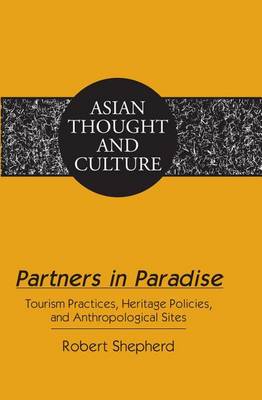Asian Thought and Culture
1 primary work • 2 total works
Book 69
How and why do some places in the world become symbols of illusive paradise, and what does this mean for their residents? Moving between anthropology, tourism, and the increasingly influential cultural heritage movement, Partners in Paradise examines the origins of a Euro-American fascination with places imagined to exist outside of Modernity. Focusing on the emergence of Tibet and Bali as, in turn, anthropological field sites, tourist destinations, and cultural heritage sites, it argues that the work of academic researchers, tourists, and cultural preservationists inform and constitute each other, in the process constructing particular places as paradise. Unpacking this process is a necessary first step in understanding how Tibetans and Balinese negotiate their place in a modern world in which the meaning of paradise is contested. Drawing on anthropology, history, and tourist studies, Partners in Paradise offers a unique lens on the politics of development, modernization, and cultural preservation.
Partners in Paradise: Tourism Practices, Heritage Policies, and Anthropological Sites
by Robert Shepherd
Published 1 January 2011

